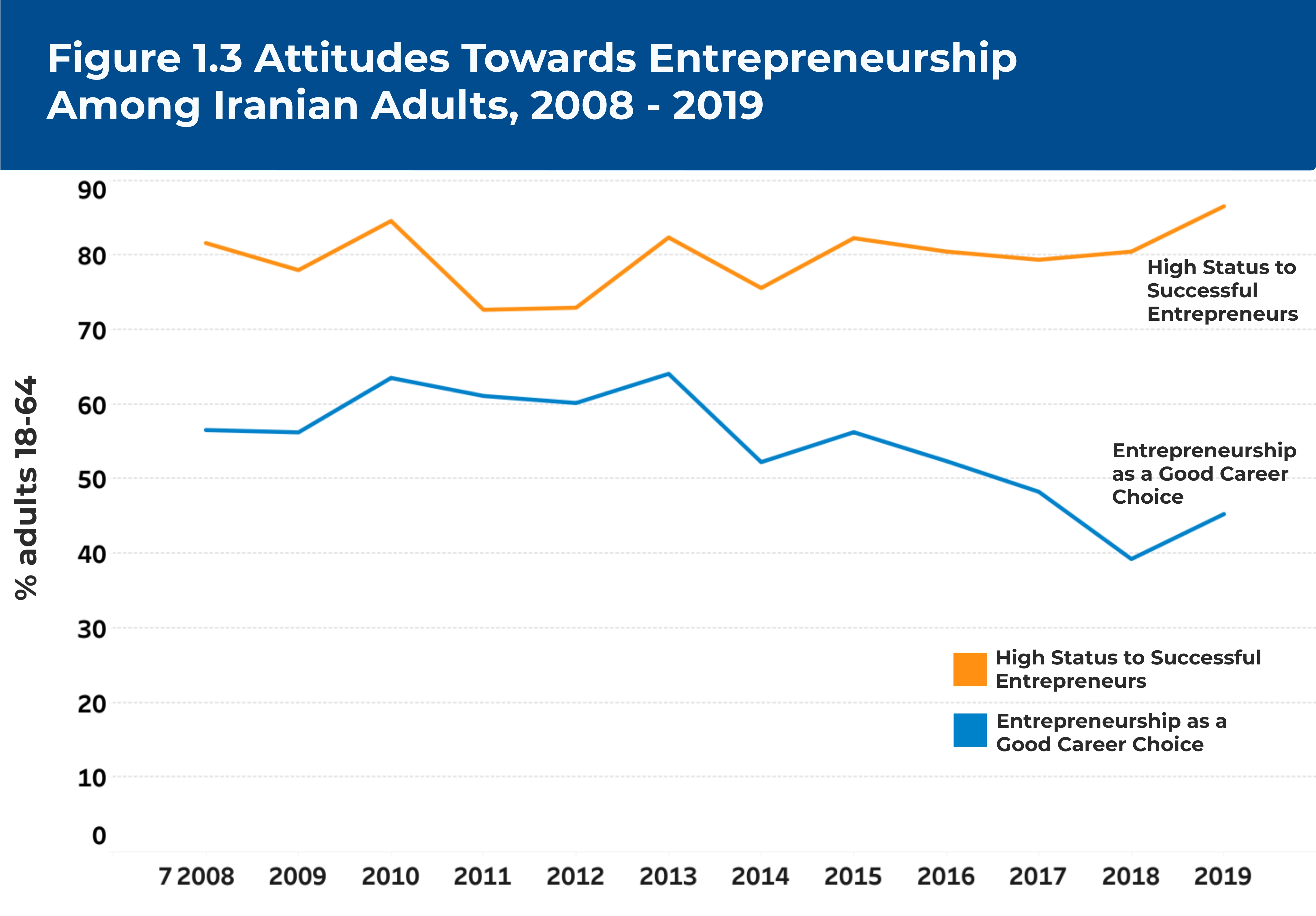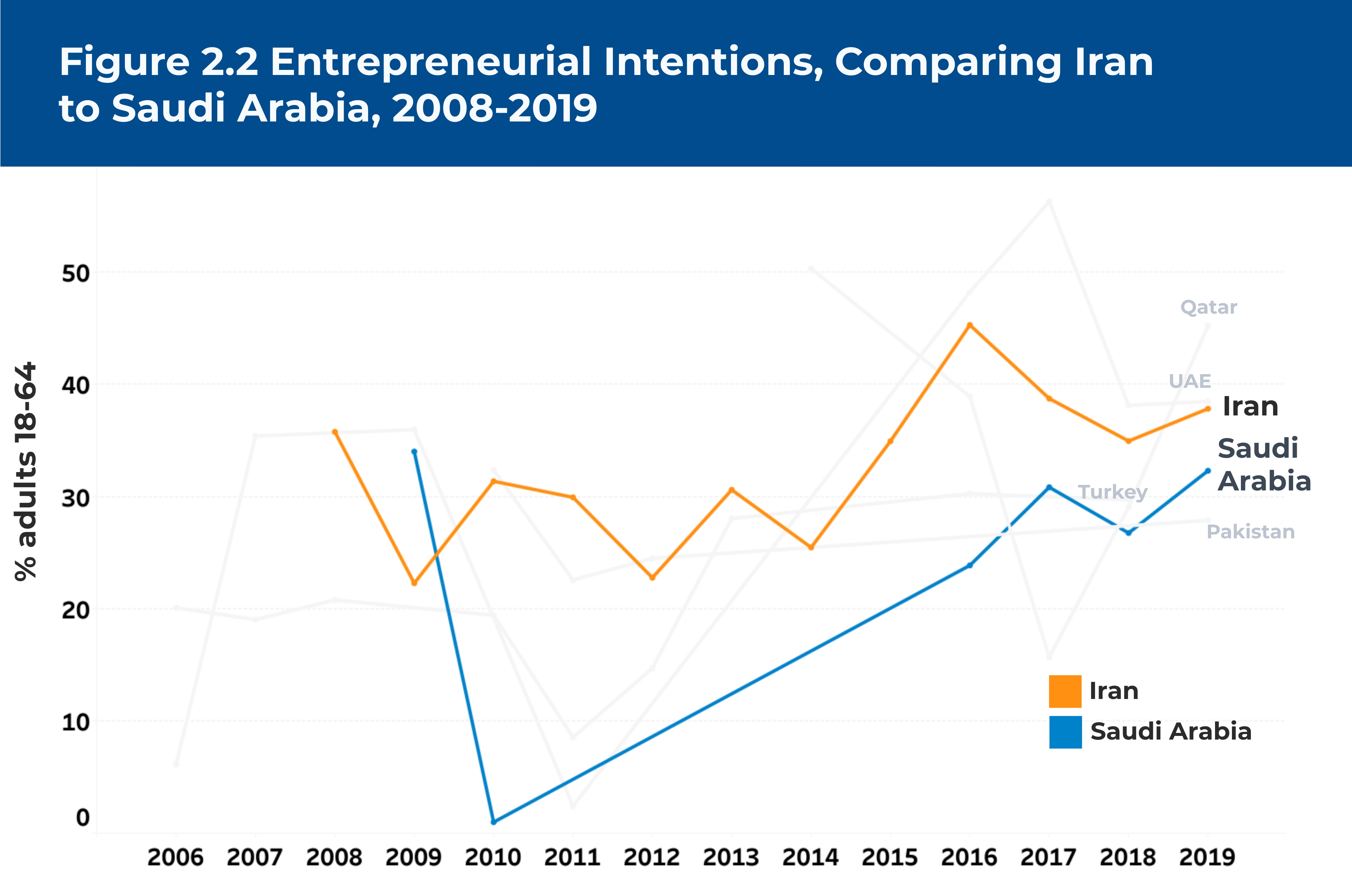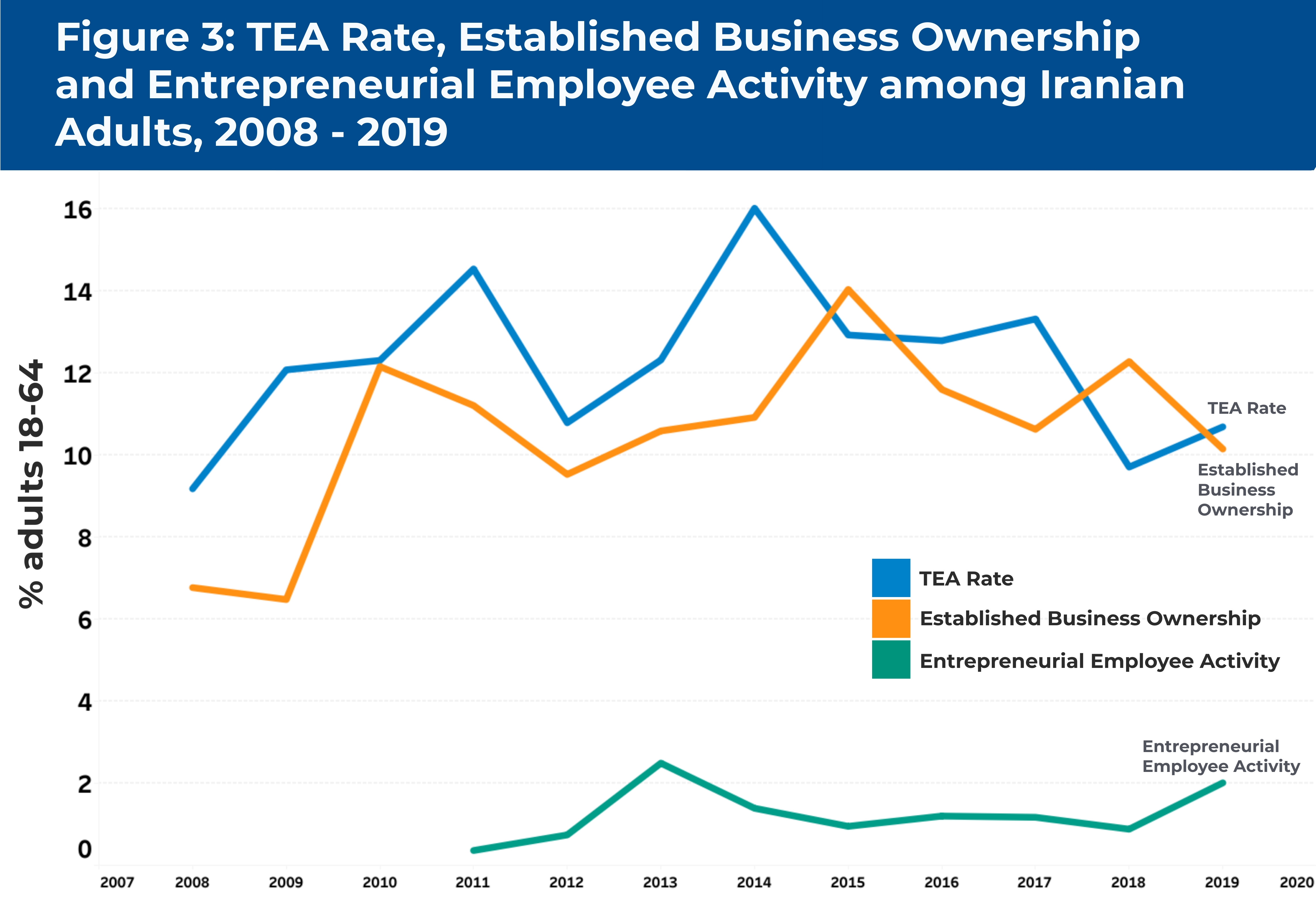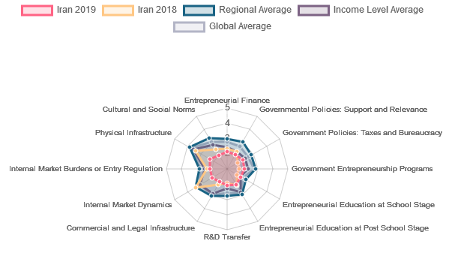By GEM Iran Team, Faculty of Entrepreneurship, the University of Tehran
The GEM 2019-2020 Iran National Report underscores progress and opportunities related to the country’s entrepreneurial ecosystem.
On the positive side, Iran’s Entrepreneurial Intention Index (37.85%) and Total early-stage Entrepreneurial Activity (10.69%) rank 11th and 26th respectively among 50 GEM countries. In Entrepreneurial Aspirations related to job growth expectations, Iran is ranked 13th among 50 countries.
While, there is outstanding entrepreneurial talent in Iran, the country’s entrepreneurial ecosystem needs improvement. In our report, we highlight the following policies and practical proposals for innovative entrepreneurship development in Iran:
- Enactment of Iran Startup Act
- Enactment of Public Privet Participation(PPP) Act
- Implement digitalisation programs
- Implement “One in One Out” rule and deregulation programs that reduce unsuitable bureaucracy so the entrepreneurship ecosystem can be enhanced
- Develop policies focused on innovation and knowledge-based entrepreneurship in the country
- Develop programs to financially support Iranian startup businesses such as Venture Capital Act
- Develop support programs for internationalising Iranian startups
- Develop organisational entrepreneurship through Corporate Business Acceleration Centres
- Design and implement specialised entrepreneurship education programs for all students at universities
- Design and approve interdisciplinary courses with an entrepreneurial approach
- Declare the third generation university’s mission as an entrepreneurial university to all universities of the country
- Establish a fund for the development of innovation, technology and entrepreneurship in higher education and allocating a particular budget to universities in order to build up entrepreneurial university in Iran.
The remainder of this article highlights data underscoring why such proposals need to be implemented.
Entrepreneurial Attitudes and Perceptions in Iran
As the below graphic shows, all entrepreneurial social perceptions and individual entrepreneurial attitudes in Iran increased from 2018 to 2019. For example, the “High Status to Successful Entrepreneurs” in Iran increased from 82% in 2008 to 87% in 2019. The responses to those who affirm “Entrepreneurship as a Good Career Choice” took off in 2019 in comparison to 2018.

According to Fig. 2.2, in 2019 the rate of Entrepreneurial Intention in Iran was equal to the United Arab Emirates (30%) and higher than Saudi Arabia and Armenia (32%).

Fig. 2.2 Index of “entrepreneurial intention” in select MENA countries
The entrepreneurial intention index and self-efficacy (confidence) index in Iran are 11 and 13 among 50 GEM countries, respectively.
70% of Iranian adults think “starting a new business in Iran” is very difficult. This ranks 45 among 50 GEM countries.
Entrepreneurial Behaviors in Iran
The three most critical entrepreneurial activities are (1) Total early-stage Entrepreneurial Activity (TEA) Rate, (2) Established Business Ownership Rate and (3) Entrepreneurial Employee Activity Rate.
The TEA Index is the prevalence rate of individuals in the working-age population who are actively involved in business startups, either in starting a new firm or in the phase spanning 42 months after the birth of the firm. TEA went from 9% in 2008 to 10.5% in 2019.
The second important index of entrepreneurial behavior is the Established (activities with more than 42 months) Business Ownership Rate. The rate of Iran’s Established Business Ownership (EBO) decreased from 12% in 2018 to 10.5% in 2019. This means the survival rate of Iranian businesses is declining.
Entrepreneurial Employee Activity Rate includes developing or launching new goods or services or setting up a new business unit, a new establishment, or subsidiary in an existing business. The Entrepreneurial Employee Activity Rate in Iran increased 2% in 2019.

Entrepreneurship Ecosystem in Iran
Iran’s entrepreneurial ecosystem is not so robust. Physical infrastructure, internal market burdens and entry regulations, and entrepreneurial financing are fragile. But the index of entrepreneurship education at the basic school and post-school stage are rising at educational institutions in recent years.
Iran’s entrepreneurial ecosystem is not in good condition. On one hand, US sanctions on Iran, especially related to the transfer of money, has led to price instability and rising inflation. In additional, institutional bureaucracy has caused many entrepreneurs and entrepreneurial leaders to encounter a shortage of liquidity, especially in midst of the COVID-19 crisis.
The University of Tehran (the Faculty of Entrepreneurship) joined GEM in 2007 and has published Iran entrepreneurship reports annually every year since then. The GEM Iran team is led by Professor Abbas Bazargan, and managed by Dr. Mohammad Reza Zali, Assistant Professor at the University of Tehran. Download the report (in Persian)

